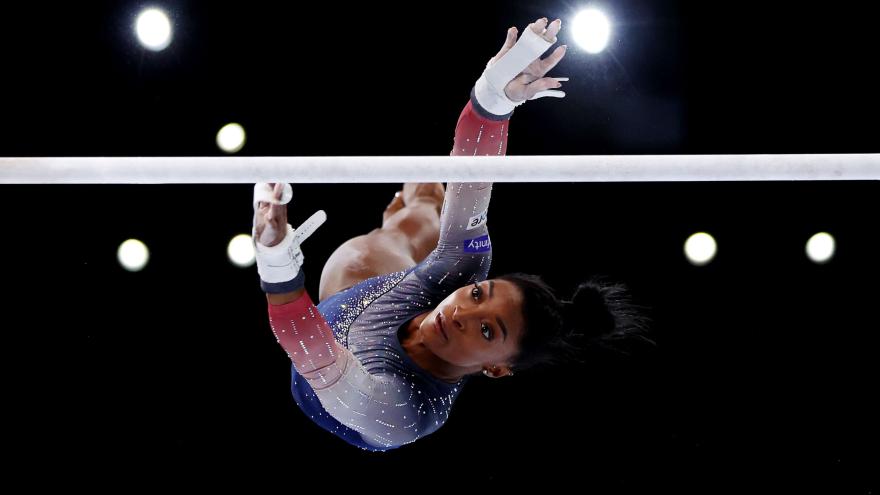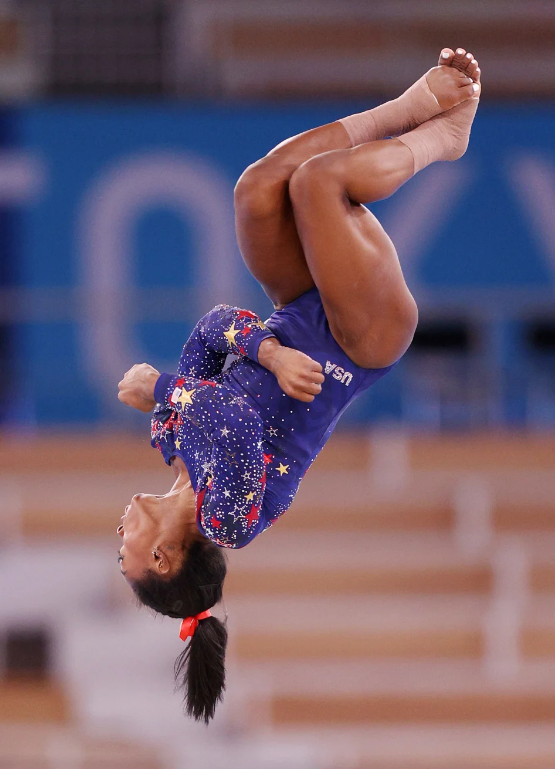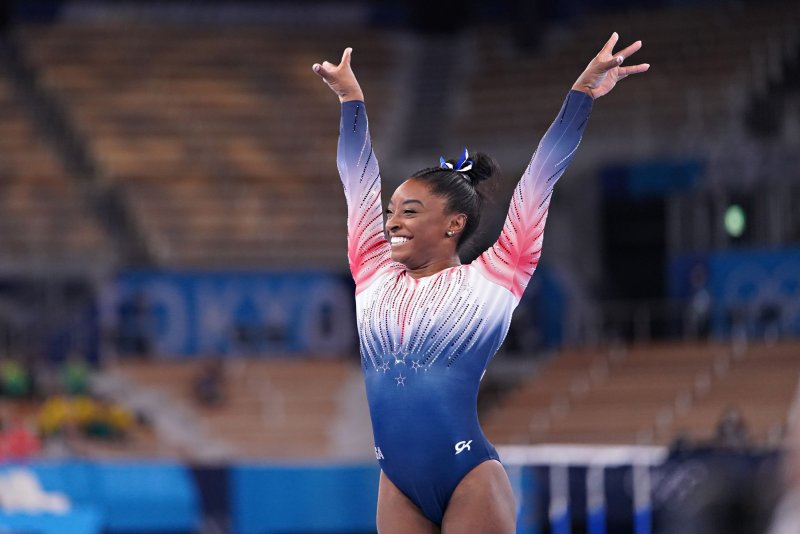The Summer 2021 Olympics
At the 2020 Olympic Games, Biles performed the all-around during the qualifications and helped the United States qualify for the team final, in second place behind the Russian team. She suffered several mishaps during qualifications: she bounced entirely off the floor landing on one of her tumbling passes and stepped one foot off the landing mat during her Cheng vault, and took several large stumbles back on her balance beam dismount. Despite these mistakes, Biles still qualified for the all-around final in first place. She also qualified in first place for the vault final, advanced to the floor exercise final in second place behind Vanessa Ferrari, and qualified for the balance beam and uneven bars finals. She was the only athlete to qualify for all the individual finals.
During warm-ups for the first rotation of the team final, Biles balked on her Amanar vault mid-air, performing 1.5 twists instead of the expected 2.5. She repeated this in the competition, balking and performing the 1.5 twist with a large lunge and near-fall on the landing, and scored just 13.766 with a difficulty score of 5.0 (rather than the Amanar's 5.8). She subsequently left the competition floor (although she returned to the floor a few minutes later) and withdrew from the rest of the team competition, citing mental health issues. The U.S. team went on to win the silver medal behind the Russian athletes. On July 28, 2021, Biles withdrew from the finals of the individual all-around competition, again citing mental health concerns. Following further medical evaluation on July 30, she also withdrew from the vault and uneven bars finals, both scheduled for the first day of the individual event finals. Due to a continued mental block, on July 31, Biles also withdrew from the floor final, scheduled for the second day of individual event finals, while still leaving the possibility of competing in the balance beam final on the last day of the event finals.She later confirmed on August 2 that she would compete in the beam final. Although Biles performed a relatively scaled down routine with an easier double pike dismount in the beam final, she won the bronze medal behind China's Guan Chenchen and Tang Xijing. With the bronze, she tied Shannon Miller for most Olympic medals by an American female gymnast with seven total. Biles also tied Soviet/Russian female gymnast Larisa Latynina for most medals won by a woman of all time, with 32 combined World and Olympic medals. She called her bronze beam medal her most meaningful one, as she felt it symbolized her focus on mental health and her perseverance.Biles later revealed that her aunt had passed unexpectedly two days before the beam event final.
Biles explained that she withdrew primarily due to experiencing "the twisties", a psychological phenomenon causing a gymnast to lose air awareness while performing twisting elements, throughout the Olympics. She noted that while it was not the first time she had had the twisties on vault or floor, it was the first time she experienced them on uneven bars and balance beam. Biles made the decision to withdraw after the first rotation of the team final because she felt that she had "simply got so lost [her] safety was at risk as well as a team medal." During the week, Juntendo University allowed Biles to practice at their gym, located an hour outside of Tokyo, where she could practice quietly away from the public eye.
Some commentators criticized Biles, accusing her of being a "quitter" or selfishly depriving another athlete of the chance to compete. She was also slandered with racist, sexist, and transphobic comments in the Russian state-owned media, as well as having been openly accused of being a drug cheat due to her Therapeutic Use Exemption for ADHD medication. Multiple gymnasts, however, defended Biles' decision and relayed their own stories of struggling with the twisties. Biles' decision to prioritize her mental health was generally widely praised and credited with starting a wider conversation about the role of mental health in sports. Alongside Biles, other Olympians in Tokyo also showed greater willingness to discuss and publicly acknowledge mental health issues, indicative of a wider approach to sport where athletes are prioritizing their health over performance.



"I say put mental health first. Because if you don't, then you're not going to enjoy your sport and you're not going to succeed as much as you want to. So it's OK sometimes to even sit out the big competitions to focus on yourself, because it shows how strong of a competitor and person that you really are — rather than just battle through it."